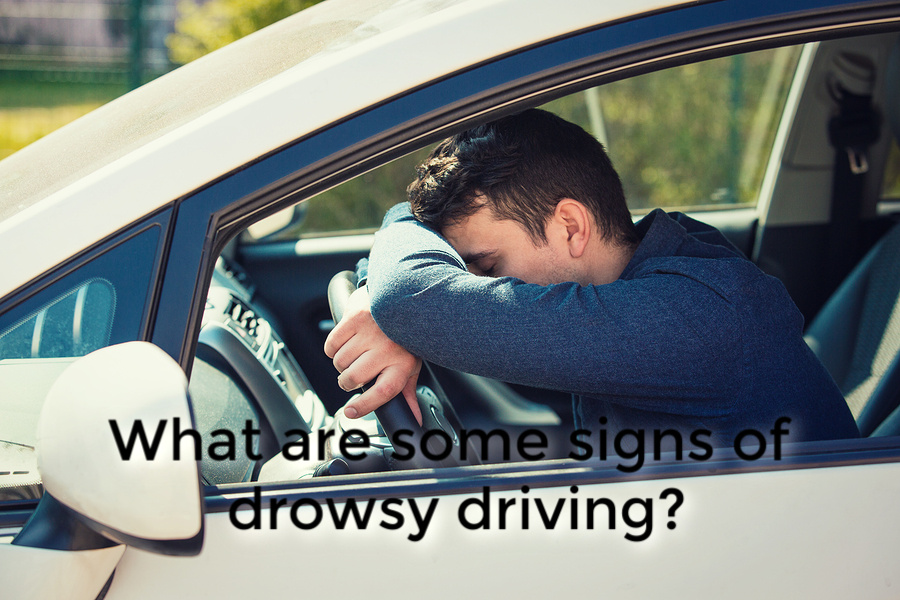By: Lauri Leadley, CCSH, RPSGT – Clinical Sleep Educator|Sleep Coach

Lauri Leadley, Clinical Sleep Educator, President of Valley Sleep Center
Most of us, at some point in our lives, have felt sleepy behind the wheel.
You could be driving back from a long, hard day at work or returning from a road trip. Suddenly, you find yourself yawning excessively or feel your eyelids droop – even for a couple of seconds before snapping back awake. Hopefully, you wake up before veering into the wrong lane or into oncoming traffic.
It can be extremely scary to lose focus and feel drowsy or sleepy while you are driving. However, drowsy driving is a harsh reality of the modern times we live in.
While a lot of attention is directed towards preventing or stopping drunk driving, drowsy driving, which can be equally dangerous, has not been given the kind of importance it requires.
Don’t Ignore Drowsy Driving
As a professional sleep coach, I treat patients suffering from all kinds of sleep disorders, including sleep deprivation, which can impact your focus and mental alertness while driving.
Treating the sleep disorder or identifying the factors for a person suffering sleep deprivation is critical for the simple reason that drowsy driving not only puts your life at risk, but it also is dangerous for other drivers on the road.
In addition to sleep deprivation, which can be an outcome of different factors or a condition in itself, obstructive sleep apnea (OSA) is a common sleep disorder which can have a serious impact on driving during the daytime.
OSA is characterized by sleep disruptions all through the sleeping hours. As a result, the person feels tired, and sleepy during their productive or waking hours. Even if you clock 7-8 hours of sleep each night, if your sleep cycle is disrupted or fragmented, you will feel the effects of sleep deprivation.
If you find that you regularly nod-off while driving, it may be because you are sleep deprived. I would strongly recommend that you consult with a professional sleep coach or your healthcare provider to address the issue as soon as possible.

Common Signs of Drowsy Driving
Drowsy driving does not simply mean a person falls asleep or feels drowsy while driving. It can affect your driving skills, have an impact on your judgment and decision making, and reduce your reaction time as well.
Common signs of Drowsy Driving include the following:
- You have difficulty focusing.
- You find yourself blinking frequently.
- Your eyelids feel heavy and start to droop.
- You start yawning repeatedly and need to constantly rub your eyes to keep awake.
- You find it difficult to keep your head up.
- You feel irritable and restless.
- You find yourself drifting from your lane, or you might even tailgate and miss exits or find it difficult to focus on traffic signs and rules.
How to Avoid Drowsy Driving – Important Tips
If you are struggling with sleep deprivation or any other sleep disorder or medical condition which is affecting your ability to sleep well at night, it is best to consult with a professional sleep coach or your health provider without too much delay.
If you want to prevent drowsy driving, consider the following tips.
- Make sure you get 7-8 hours of sleep each night.
- You could try taking a short 30-minute nap just before you start driving.
- Avoid taking sleeping pills the night before you are going to drive – the effects of sleeping agents can stay in your body for around 10-12 hours.
- If you have been struggling with drowsy driving or if you are sleep deprived, it is best to have someone who can switch seats with you if you feel sleepy behind the wheels.
- If you can, try and avoid driving by yourself – consider using public transport or use a cab service or carpool.
- If you are going to be driving long distance, make sure you take a break – refresh yourself or take a short nap before starting again.
- Try and avoid driving too early in the morning or very late at night.
- Under no circumstances should you take the wheel if you are intoxicated or are using medication that induces sleep.
Valley Sleep Center – We Can Help You Sleep Better!
Are you struggling with drowsy driving? Or are you suffering from a sleep disorder? If yes, then you need help. Contact us at Valley Sleep Center for accurate analysis and treatment option for your sleep disorder.
To consult with professional sleep coach Lauri Leadley, please email us at sleep@valleysleepcenter.com.

